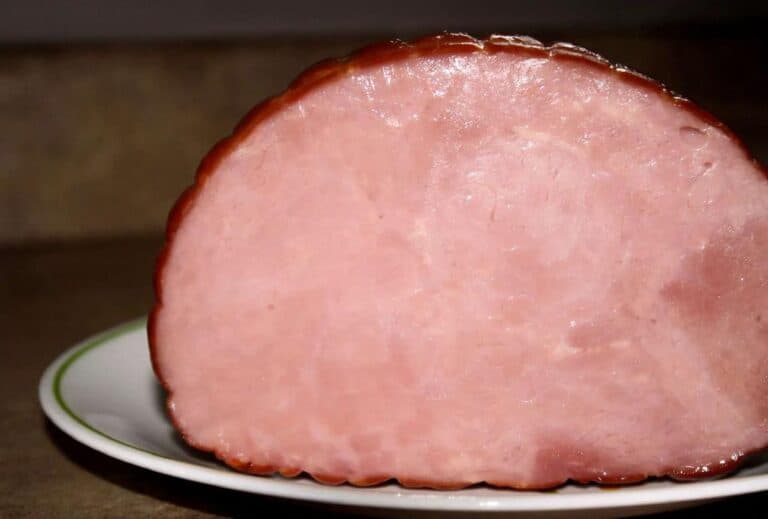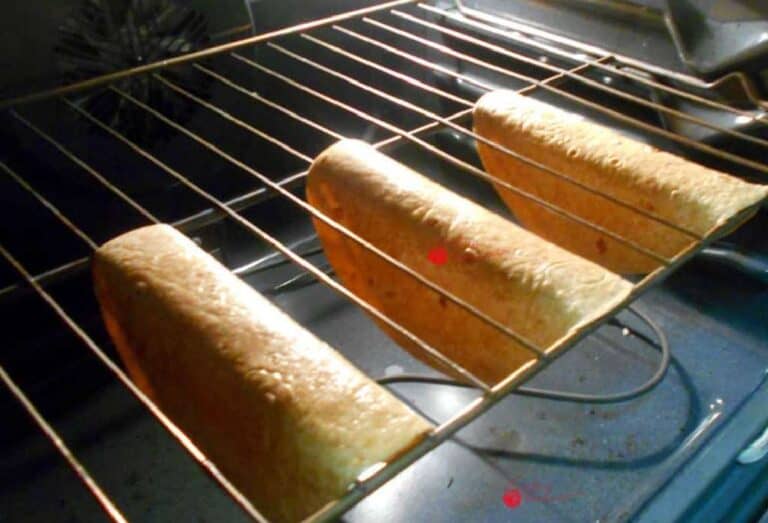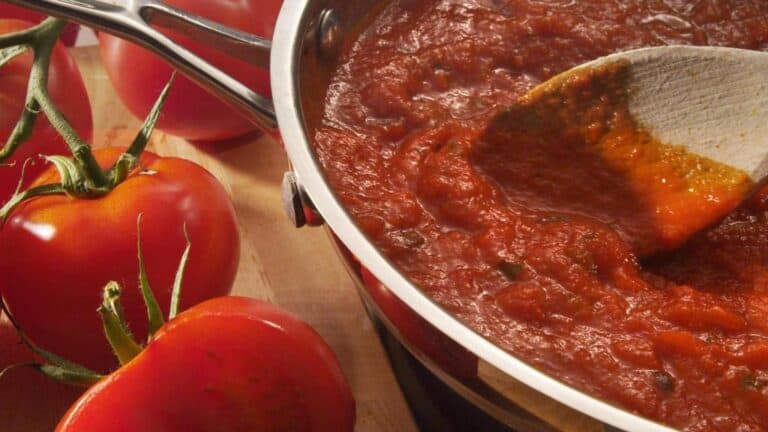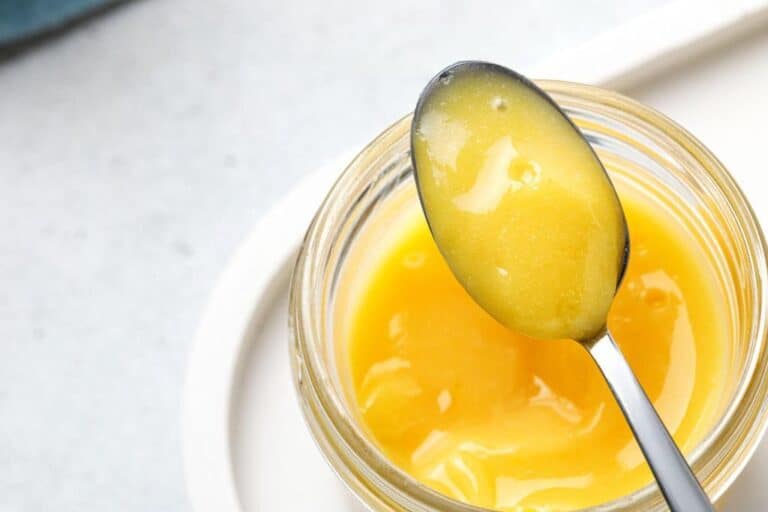Does Lemon Curd Thicken as It Cools? How To Thicken After Cooking
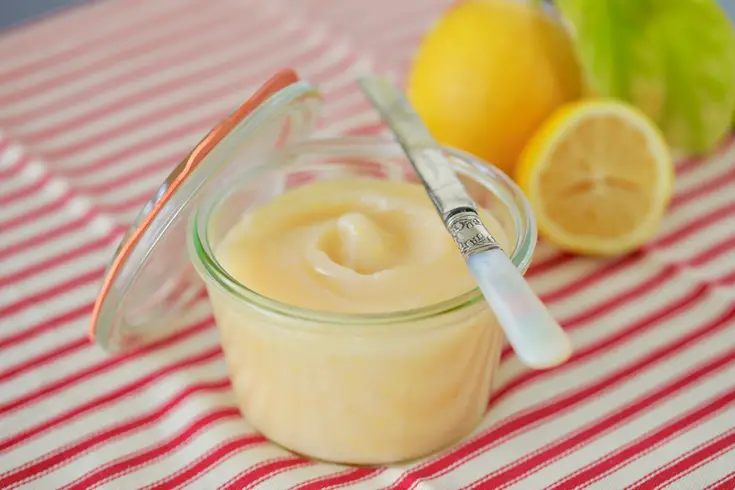
Lemon curd is a delicious, tart spread that can be used in a variety of ways. While it is typically made with eggs, sugar, butter, and lemon juice, some cooks also add cornstarch to help thicken the mixture.
For a thick lemon curd, cook it slowly over low heat until it’s thick enough to coat the back of a spoon. If you prefer a thinner lemon curd, cook it over medium-low heat until it reaches your desired consistency.
So, does lemon curd thicken as it cools?
The answer appears to be both yes and no. Without the addition of cornstarch, lemon curd will usually thicken as it cools. This is because the egg proteins in the mixture will begin to set as they reach lower temperatures. However, if your lemon curd is not thick enough after cooling, you can always add a little cornstarch to help it along.
Does Lemon Curd Thicken as It Cools?
You are wondering what happens when you make lemon curd and it starts to cool. Does it thicken up like other jams and jellies, or does it stay the same consistency?
The answer is both yes and no. Lemon curd will thicken as it cools, but not in the same way that other jams or jellies do. When you heat up lemon curd, the egg yolks start to coagulate and thicken the mixture. As soon as it starts to cool down, the egg yolks begin to solidify, and the mixture will keep its thickness.
But what happens when you try to spread it on a cold piece of bread? Does lemon curd thicken as it cools?
But why would you want to thin out your lemon curd? Well, sometimes thickened lemon curd can be difficult to spread. And if you’re using it as a filling for tartlets or tarts, a thinner lemon curd will be easier to pipe into the crusts.
So, there you have it!
How Do You Thicken Lemon Curd?
If you find that your lemon curd is too thin, there is an easy way to thicken it up.
Cooking Low Heat
The most common way to thicken lemon curd is by cooking it over low heat until it thickens. This method takes the longest, but it is very reliable.
Use Gelatin
Simply dissolve the gelatin in a little bit of water and then stir it into the lemon curd. The gelatin will thicken the lemon curd as it sets. You can use this method to make your lemon curd as thick or thin as you like. Just be sure to add enough gelatin to get the desired consistency.
If you don’t have any gelatin on hand, or if you are looking for a vegan option, agar agar powder can be used in place of the gelatin. Simply follow the same directions as above and substitute the agar agar powder for the gelatin.
Use Cornstarch or Arrowroot Powder
If you are in a hurry, you can add cornstarch or arrowroot powder to your lemon curd. These ingredients will thicken the curd quickly, but they can also make it clumpy if not used correctly.
Mix one tablespoon of cornstarch with a quarter cup of water until the cornstarch is completely dissolved. Over low heat, slowly add the mixture to your lemon curd while stirring frequently until it reaches the required thickness.
Egg Yolks
Finally, if your lemon curd is still too thin after trying these methods, you can always add more egg yolks. While stirring continuously over low heat, slowly pour the mixture of egg yolk and water into your lemon curd until it thickens to the desired consistency. But if you use this method, you should make sure the egg yolk is fresh.
Whichever method you choose, thickening lemon curd is easy and will give your desserts an extra zesty boost!
Lemon Curd’s Ideal Thickness
The perfect thickness for lemon curd depends on how you plan to use it. Lemon curd should be thick enough to spread on toast or a scone but not so thick that it resembles a lemon tart filling.
The perfect consistency is achieved when the curd coats the back of a spoon and holds its shape when you run your finger through it.
I like to make a thicker batch so that it can be easily spread on toast or used as a filling for cakes and tarts. If you are looking for a thinner consistency, simply add more lemon juice until you reach the desired consistency.
How Long Does It Take for Lemon Curd to Thicken?
Making lemon curd is fairly simple, but one important step is ensuring that it thickens properly. So, how long does it take for lemon curd to thicken?
Generally, it takes about 10 minutes of cooking for lemon curd to reach the desired consistency and ideal thickness. This can vary slightly based on factors such as the amount of lemon juice used and the heat of the stovetop.
To check if your lemon curd is thickening properly, simply run a spoon through it—if the line stays visible, it needs more time. If the line disappears quickly, it is most likely ready.
Once thickened, remove the lemon curd from the heat and add any final ingredients, such as butter or zest. Stir until combined, then transfer to a clean jar or container.
What Causes Your Lemon Curd to Be Runny and Watery?
There are a few reasons why your lemon curd is watery and runny, and not thickened as it should.
- One main reason why the mixture didn’t thicken is because you didn’t simmer it long enough. This shouldn’t be a problem if you wait until the mixture is practically boiling. You just take the pan away from the heat source too soon.
- Additionally, when increasing heat, do it gradually and whisk the mixture often. This is because a hot pot has the potential to scorch the mixture before it has a chance to thicken.
- You mixed your juice with too much water. For every cup of sugar you add, you shouldn’t use more than one cup of lemon juice. This will also change the consistency of your lemon curd.
- Some of the ingredients in your recipe are missing. Don’t forget anything. Be sure to include butter, sugar, a little lemon juice, and a dash of salt in your mixture. If you add more water, it will also become runny.
- You’re not using enough butter. It is possible to make lemon curd without butter, but the flavor will undoubtedly change. The creamy texture of the lemon curd requires butter. Your lemon curd will be runny if you don’t use enough butter since there was too much water in the recipe.
What to Do If Your Curd Won’t Thicken
If you are trying to make a fruit curd and it won’t thicken, there are a few things you can do.
- First, make sure that you have cooked the curd long enough. It should be simmered for at least 15 minutes, or until it coats the back of a spoon. This is because it will take time for the curds to separate from the whey, and this only happens when the curds are cooked properly.
- Next, make sure that you are stirring it constantly while it is cooking. This helps the curd cook evenly and prevent lumps.
- If the curd still isn’t thickening after cooking, you can add a bit of cornstarch or arrowroot powder to help it along. Just whisk in a tablespoon or two of either one and cook for another minute or two. This is because the acidity in lemon juice can sometimes prevent the cornstarch from thickening.
- If all else fails, you can always strain the curd through a fine mesh strainer to remove any lumps that might be preventing it from thickening properly.
Lemon Curd: How Should It Be Stored?
To preserve and store lemon curd, you can put it in the refrigerator in an airtight container. Be sure to label the container with the date so that you know when it was made.
When thawed, place the lemon curd in the refrigerator for a few hours before using it. When stored properly, lemon curd will last for up to two weeks in the fridge.
You can also freeze lemon curd for longer storage. Again, place it in an airtight container and freeze it for up to three months. When you’re ready to use it, thaw the lemon curd in the fridge overnight.
You can also zap it in the microwave for a few seconds to soften it. As you can see, there are many ways to preserve lemon curd. If you’re looking for an easy homemade treat that will impress your friends and family, give this tangy spread a try!
Keypoints on Does Lemon Curd Thicken as It Cools? How To Thicken After Cooking
Lemon curd is a delicious, tart spread made from lemon juice, lemon zest, sugar, butter, and eggs. It is often used as a filling for cakes and pastries, or as a spread on toast or scones. While store-bought lemon curd can be quite good, homemade lemon curd is even better. And, it’s not difficult to make!
The ratio of sugar to egg yolks and lemon juice in a traditional lemon curd recipe is two parts sugar to one part (or the grated rind of one or two lemons).
The key to making perfect lemon curd is to cook it until it reaches the desired thickness. One way to thicken lemon curd after cooking is to add cornstarch or arrowroot powder.

